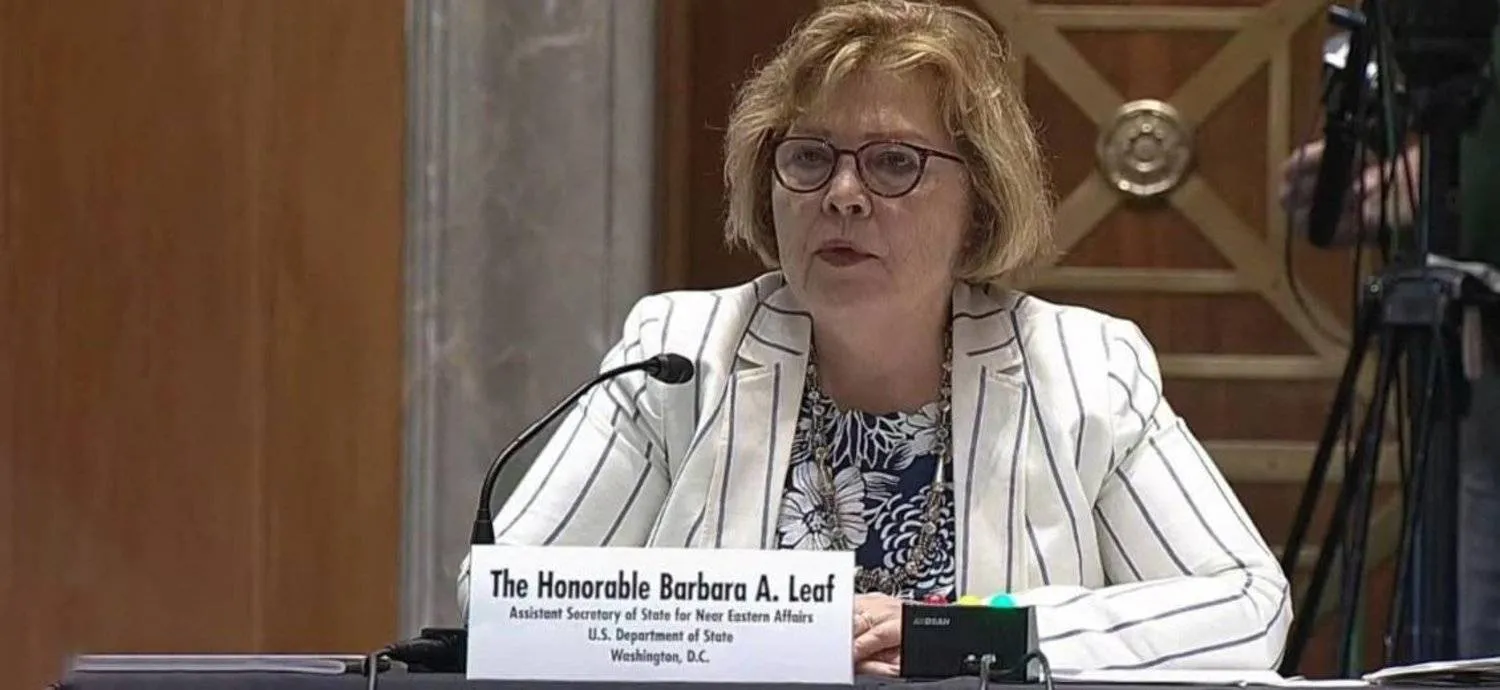Assistant Secretary of State for Near Eastern Affairs Barbara Leaf has said the US was considering the possibility of imposing sanctions on some Lebanese officials over the failure to elect a new president.
During a Senate committee hearing on the Middle East, the top US diplomat for the region expressed the Biden Administration’s “enormous frustration” over the current situation in Lebanon.
Leaf said Washington was “working collaboratively with several regional partners, European partners, to push the Lebanese Parliament to do its job.”
“The elected representatives of the Lebanese people have failed to do their jobs. The Speaker of the Parliament has failed to hold a session since January to allow members to put candidates forward for the presidency, to vote on them up or down, and to get a choice to get to elect a president,” according to Leaf.
Leaf responded to a question by Sen. Cynthia Chaheen on whether sanctions should be contemplated, saying, “We are looking at it. Yes, we are.”
She further affirmed, “We are engaging with the diaspora. I meet regularly with members of the Lebanese Parliament who come through town.”
“In the face of growing instability, Lebanon’s political class must urgently overcome their differences and commit to advancing the interests of Lebanon’s people,” Congressmen Mike McCaul and Gregory Meeks said in a letter to Secretary of State Antony Blinken.
“We also call on the Administration to use all available authorities, including additional targeted sanctions on specific individuals contributing to corruption and impeding progress in the country.”
They called on the Lebanese Parliament to “break through months of intransigence to urgently elect a new president who is free from corruption and undue external influence.”









